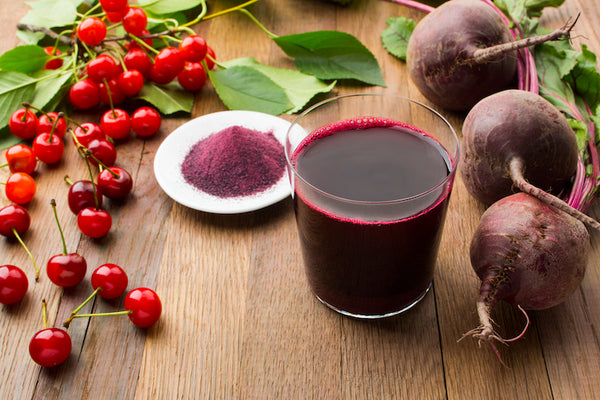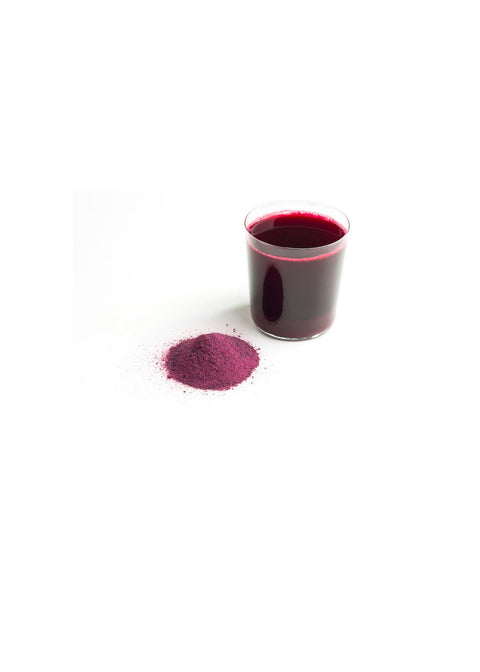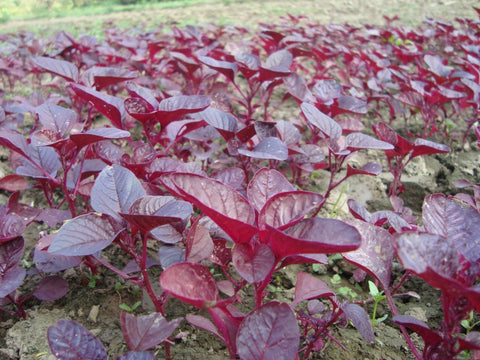Top Nitric Oxide Supplement Ingredients Compared
When considering which nitric oxide supplement is best, the options might seem overwhelming with many factors to consider. From food-based natural ingredients to lab synthesized molecules, nitric oxide boosting comes in many forms, but knowing the best source is key to getting the ultimate boost. It’s easier than it might seem to determine the best nitric oxide boosting supplement. That’s why we’re comparing the ultimate nitric oxide supplement ingredients to other ingredients, making it easier to adopt best practices. However, it’s important first to know the many ways nitric oxide is produced and what it does in the body.
How nitric oxide is produced
Nitric oxide is a vital gas produced in the body via several mechanisms. Nitric oxide relaxes smooth muscles and impacts tissue oxygenation and nutrient delivery throughout the body. One way nitric oxide is produced is enzymatically from the amino acids L-arginine to L-citrulline and non-enzymatically in the stomach and surface of the skin.
Three isoforms of NOS (Nitric Oxide Synthase: a family of enzymes catalyzing L-arginine to nitric oxide) have been identified thus far. We know them as:
- Neuronal NOS (NOS1 or nNOS) - the enzyme responsible for synthesizing nitric oxide by neurons.
- Inducible NOS (NOS2 or iNOS) - induced by cytokines and lipopolysaccharide (LPS). Inducible NOS produces large amounts of nitric oxide for extended periods.
- Endothelial NOS (NOS3 or eNOS).
Nitrate-rich vegetables are another primary way nitric oxide is produced. Certain nitrate-rich juices, juice powders, and vegetables are all excellent boosters of nitric oxide. Some of the top nitrate-rich vegetables include:
- Red Spinach
- Beets
- Arugula
- Bok Choy
- Broccoli
- Celery
- Swiss Chard
- Green Spinach
- Kale
- Mustard Greens
- Rhubard
- Spirulina
Nitric oxide production in the human body
The main reason for taking a nitric oxide supplement is that our bodies can only produce so much on their own. Many factors impact how well and how much nitric oxide our bodies produce, including our level of physical activity, the foods we eat, our method of breathing, and especially our age; as we age, we lose roughly 10% of our natural ability to produce nitric oxide with every decade that passes. Aging shifts our body’s nitric oxide production and dramatically impacts our energy levels, mobility, and overall health. The reduction in naturally produced nitric oxide is a key reason for sourcing the healthiest ingredients for increasing nitric oxide.
L-arginine and L-citrulline in supplements
L-arginine and L-citrulline are common amino acid ingredients in nitric oxide supplements. Both L-arginine and L-citrulline are produced naturally; however, most supplement ingredients are synthesized in a lab or derived from animal proteins that are rich in amino acids. Healthy plant-based foods that are rich in L-arginine and L-citrulline include watermelon, cucumber, walnuts, almonds, and many more. When found in supplements, however, these amino acids are often synthesized from animal proteins in a lab i.e., not from natural food sources. Since L-arginine is primarily found in meat, most L-arginine supplements are not vegan. According to studies, arginine-alpha-ketoglutarate, found in many supplements, has been associated with hospitalization. It’s important to know the source of the amino acids that are added to supplements when they aren’t directly derived from food-based supplements.
What are the best ingredients for a nitric oxide supplement?

Extensive research has found that nutrition from plant-based food may be better than nutrition from lab-made supplements. Tuft University research uncovered these key findings when comparing nutrients from food versus supplements:
- The lower risk of death associated with adequate nutrient intakes of Vitamin K and magnesium was limited to nutrients from foods, not from supplements
- The lower risk of death from CVD associated with adequate intakes of vitamin A, vitamin K, and zinc was limited to nutrients from foods, not from supplements
- Calcium intake from supplement totals of at least 1,000 mg/day was associated with an increased risk of death from cancer, but there was no association for calcium intake from foods
Food is the ideal supplement because it brings everything the body needs without added ingredients that do more harm than good - like sweeteners and too much caffeine. The best nitric oxide supplements are made directly from foods by dehydrating and crushing high nitrate vegetables like beets and red spinach into powder.
Nitric oxide boosting starts in the mouth
The mouth is a key starting point for nitric oxide production. Specifically, the back of the tongue contains vital bacteria that reduce nitrate to nitrite. When we consume high levels of nitrate through our mouth, studies show an increase in nitric oxide generation in the stomach. More nitrate in the mouth means more nitric oxide production in the body. This process also protects us from pathogens that get swallowed. Creating a healthy microbiome in the mouth is important and can be achieved by avoiding alcohol-based mouthwash and fluoride toothpaste that kill key bacteria. Learn more about how nitric oxide boosting starts in the mouth.
Organic vs. non-organic for boosting nitric oxide
Eating organic produce is often the pinnacle of healthy choices. However, there is at least one exception to the organic rule: According to several studies, organic vegetables like beets and spinach contain much lower nitrate levels than conventionally farmed crops. When the desire is to increase nitrate levels for boosting nitric oxide and health, conventionally grown beets and spinach deliver up to 10xtimes more nitrates than non-organic vegetables. So yes, eating organic crops is ideal, however, opt for conventionally grown nitrate-rich vegetables for boosting nitric oxide levels.
Top Nitric Oxide Ingredients in Supplements

Food-based ingredients:
Beets
multiple biologically active phytochemicals including betalains, (e.g., betacyanins and betaxanthins), flavonoids, polyphenols, saponins, and inorganic nitrate (NO3); it is also a rich source of diverse minerals such as potassium, sodium, phosphorous, calcium, magnesium, copper, iron, zinc and manganese.
Red Spinach
Amino acid, iron, phosphorus, vitamin E, potassium, vitamin C, and magnesium, fiber, protein, beta-carotene, vitamin K, iron, magnesium, phosphorus.
Food-based (organic = less nitrate)
Less nitrate concentration, less impact than conventionally grown vegetables
other common ingredients:
L-arginine (from arginine alpha-ketoglutarate)
AAKG containing supplements may be associated with adverse effects requiring hospital admission.
A 24-year-old man hospitalized with palpitations and a headache - AAKG was the active ingredient. - https://pubmed.ncbi.nlm.nih.gov/19755457/
Added sweeteners like xylitol, stevia leaf extract
Unnecessary added sweeteners with no nitric oxide benefits
Natural flavors (ex. Lemon, lime, etc.)
Natural flavors are unregulated and may contain GMOs, preservatives, or other questionable ingredients that aren’t listed.
Citrulline malate
insufficient research to compare citrulline malate to L-citrulline directly - a cheaper option for manufacturers
L-arginine HCL
Arginine HCL is a synthetically manufactured form of arginine that combines the amino acid with a hydrogen chloride molecule
Beta-alanine
How can vegans use Beta-Alanine? Beta-alanine is a useful amino acid for any diet, however many of the top natural food sources are animal-based.
L-glutathione
Synthetic glutathione supplements are known to be very poorly absorbed and almost unrecognizable to your body. Glutathione dietary supplements are known as L-glutathione, reduced glutathione or GSH.
Caffeine
Studies show caffeine decreases nitric oxide levels and shouldn’t be taken in excess in nitric oxide boosting supplements - https://pubmed.ncbi.nlm.nih.gov/11923558/
L-Norvaline
Studies show associations with Cytotoxicity and mitochondrial dysfunction - https://www.sciencedirect.com/science/article/abs/pii/S0887233318305782
The best nitric oxide supplements are unadulterated and come directly from the earth, not synthesized in a lab. Nitrate-rich food-based supplements are the safest and most sustainable boost that can be taken every day. Things to look for on the label for your nitric oxide boost:
- Vegan
- Non-GMO
- Preservative Free
- Gluten-Free
- No Added Sugar
- No Natural Flavors
- No Artificial Flavors
The best nitric oxide supplement for every day is beetroot powder, and for athletic performance, red spinach powder kicks nitrate levels into high gear for an entirely powerful and natural stamina boost.
Resources
Duncan, C., Dougall, H., Johnston, P., Green, S., Brogan, R., Leifert, C., Smith, L., Golden, M., & Benjamin, N. (1995). Chemical generation of nitric oxide in the mouth from the enterosalivary circulation of dietary nitrate. Nature medicine, 1(6), 546–551. https://doi.org/10.1038/nm0695-546
Ming-Sheng Zhou, Hiroaki Kosaka, Hirohito Yoneyama, Potassium augments vascular relaxation mediated by nitric oxide in the carotid arteries of hypertensive Dahl rats, American Journal of Hypertension, Volume 13, Issue 6, June 2000, Pages 666–672, https://doi.org/10.1016/S0895-7061(99)00269-1
Ma, L., Hu, L., Feng, X., & Wang, S. (2018). Nitrate and Nitrite in Health and Disease. Aging and disease, 9(5), 938–945. https://doi.org/10.14336/AD.2017.1207
Luiking, Y. C., Engelen, M. P., & Deutz, N. E. (2010). Regulation of nitric oxide production in health and disease. Current opinion in clinical nutrition and metabolic care, 13(1), 97–104. https://doi.org/10.1097/MCO.0b013e328332f99d
Luiking, Y. C., Engelen, M. P., & Deutz, N. E. (2010). Regulation of nitric oxide production in health and disease. Current opinion in clinical nutrition and metabolic care, 13(1), 97–104. https://doi.org/10.1097/MCO.0b013e328332f99d
Mirmiran, P., Houshialsadat, Z., Gaeini, Z. et al. Functional properties of beetroot (Beta vulgaris) in management of cardio-metabolic diseases. Nutr Metab (Lond) 17, 3 (2020). https://doi.org/10.1186/s12986-019-0421-0
Mou, B. (2019). ‘USDA Red’ Spinach, HortScience horts, 54(11), 2070-2072. Retrieved Dec 28, 2021, from https://journals.ashs.org/hortsci/view/journals/hortsci/54/11/article-p2070.xml
Kate Samardzic, Kenneth J. Rodgers, Cytotoxicity and mitochondrial dysfunction caused by the dietary supplement l-norvaline, Toxicology in Vitro, Volume 56, 2019, Pages 163-171, ISSN 0887-2333, https://doi.org/10.1016/j.tiv.2019.01.020.
https://www.smithsonianmag.com/smart-news/nutrients-food-better-than-supplements-180971954/
Chen, F. et al. (2019). Association among dietary supplement use, nutrient intake, and mortality among US adults: a cohort study. Annals of Internal Medicine. doi: 10.7326/M18-2478
Prosser, J. M., Majlesi, N., Chan, G. M., Olsen, D., Hoffman, R. S., & Nelson, L. S. (2009). Adverse effects associated with arginine alpha-ketoglutarate containing supplements. Human & experimental toxicology, 28(5), 259–262. https://doi.org/10.1177/0960327109104498
Goyal, S.K., Samsher and Goyal, R.K. (2010). Stevia (Stevia rebaudiana) a bio-sweetener: A review. International Journal of Food Sciences and Nutrition, 61, 1, 1-10.
Kobylewski, S. and Eckhert, C.D. (2008). Toxicology of rabaudioside A: A review. Retrieved July 20, 2011.
Trexler, E. T., Smith-Ryan, A. E., Stout, J. R., Hoffman, J. R., Wilborn, C. D., Sale, C., Kreider, R. B., Jäger, R., Earnest, C. P., Bannock, L., Campbell, B., Kalman, D., Ziegenfuss, T. N., & Antonio, J. (2015). International society of sports nutrition position stand: Beta-Alanine. Journal of the International Society of Sports Nutrition, 12, 30. https://doi.org/10.1186/s12970-015-0090-y
Bruce, C., Yates, D. H., & Thomas, P. S. (2002). Caffeine decreases exhaled nitric oxide. Thorax, 57(4), 361–363. https://doi.org/10.1136/thorax.57.4.361
https://www.smithsonianmag.com/smart-news/nutrients-food-better-than-supplements-180971954/





Comments (0)
There are no comments for this article. Be the first one to leave a message!